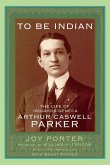Alexander McGillivray, chief of the Creek Nation, was the most powerful Native American in the United States when George Washington became the nation's first president in 1789. Both men faced uncertainty. McGillivray, of what is now Alabama, had been on the losing side of the Revolutionary War backing the British. Washington faced the task of making the new nation a political reality. He wanted a national policy toward the Native Americans that would be binding on Georgia, whose citizens were invading Creek lands. As that policy developed, Washington decided to make Native American rights a top priority, in large part at the urging of his trusted advisor Henry Knox who became his moral conscience on the issue. Washington and Knox made McGillivray the cornerstone of their vision. They had Colonel Marinus Willett travel to Alabama to convince McGillivray to meet in the capital, then New York. Willett, McGillivray and 26 chiefs journeyed 700 miles, weeks by horseback, for the meeting. They were feted along the way, greeted in New York by huge crowds and treated like royalty. The peace treaty was signed on August 13, 1790, barely a year after Washington's inauguration.








